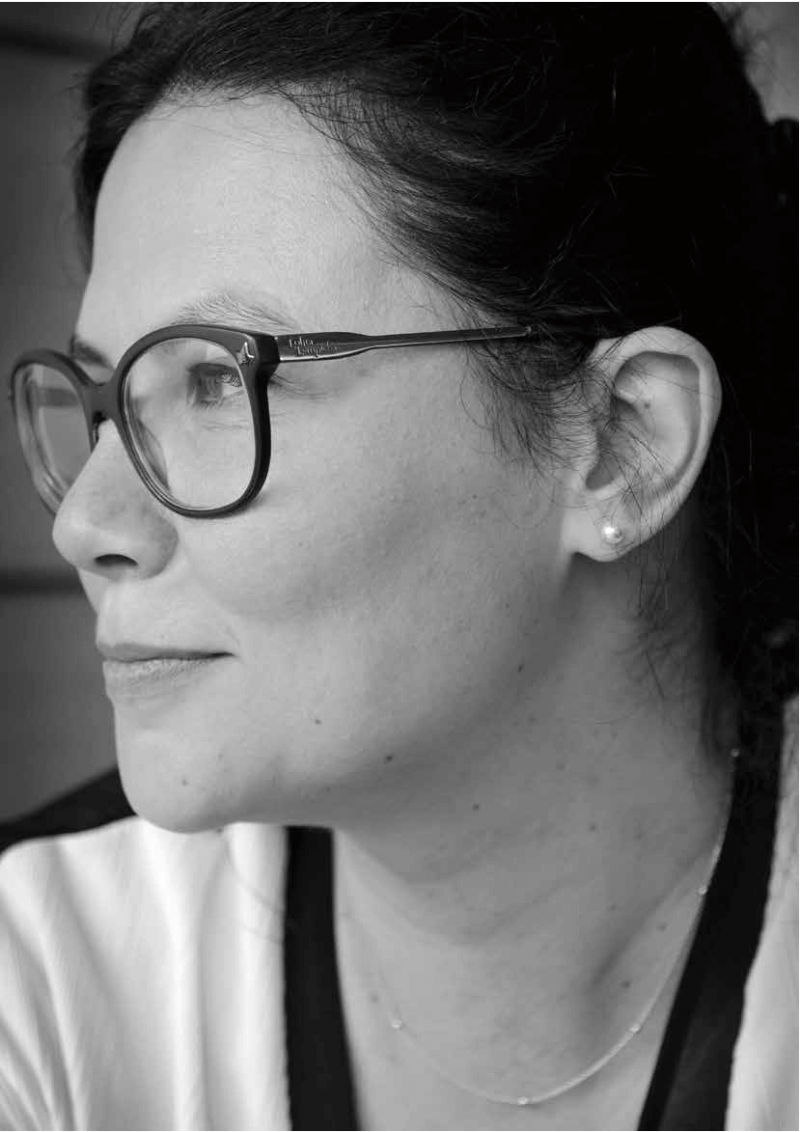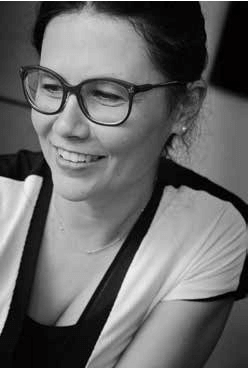Issue:

Johann Fleuri
by GAVIN BLAIR
“It happened early, when I was about 16 or 17 the age that you start thinking about what you want to do with your life,” says Johann Fleuri, of first catching the journalism bug. “I like writing, but it was meeting people, talking with people and hearing their stories that was the fascinating thing for me.”
During the final two years of a course in modern literature and journalism at university in Brittany in her native France, she began working for Ouest France newspaper and two magazines. “I was working while studying, but mostly working. I kept going to school a little, but not so much,” says Fleuri, who after graduation was asked to join the launch of a new magazine in Normandy, owned by Ouest France’s parent company.
Working in a small team building a magazine from scratch and getting feedback on test editions was a valuable experience in always keeping the reader in mind, explains Fleuri. “Writers have to think about the reader, but also have to focus on the people that we are talking to and the way we want to write the piece: it’s easy to forget that someone is reading it but that’s the goal, right? It helped me to learn that,” she says.
“Your first impression is always wrong; if you don’t dig and dig and dig and try to understand, you don’t get the truth. I like that.”
After a tough period of writing professionally while studying, followed by two years of working “every day until late with no holidays,” she says she needed a rest. “I decided to travel and maybe write a piece or two, but basically take a break. I had a list of countries I wanted to travel to and Japan was first,” says Fleuri.
She visited Japan in 2009, determined to see the country beyond the big cities, discover the culture and learn the language. “I felt really comfortable here. I had an image about Japan, but it was like nothing I knew or had read about. I had traveled before, but no other country gave me the feeling that I really knew nothing about it,” she recalls.
RETURNING TO JAPAN REGULARLY to write for a variety of publications, including Ouest France, she won the Robert Guillain prize in 2013 from the Japanese embassy in France for her work on Tohoku. The award included funding to return to Japan, and she spent five weeks in Ishin maki in 2013 covering the reconstruction process from the locals’ point of view. “I really felt I wanted to settle here after that,” says Fleuri. She moved to Japan in 2015.
As well as writing straight news as correspondent for Ouest France, Flueri is also able to pursue her real passion: in depth stories digging deep into Japanese society and culture. “Those are the kind of subjects that makes Japan so interesting. Your first impression is always wrong; if you don’t dig and dig and dig and try to understand, you don’t get the truth. I like that,” she says.
Covering women’s issues for La Gazette des femmes, she has written about gender inequality in the workplace, including jobs that females are excluded from, such as sushi chefs and saké brewers. “I also wrote about sexuality, discussing it with many women over a few months,” she explains. “It’s not an easy subject to get people to talk about, especially to a stranger, but it was very funny and I had very unexpected answers. Fleuri believes that being able to communicate directly in Japanese without a translator was crucial in connecting with the women.
The freedom that some of the publications give her to spend months on a single story allows her to get under the surface of issues. “I wrote about whaling, and traveled around talking to people for about six months. The reaction was quite negative at first because they thought I was just another foreigner writing about whaling,” says Fleuri. “But I found it fascinating because the answers were nothing like I expected. Most people I met were in favor of whaling even though they don’t eat whale meat.”

THE KEEN INTEREST MANY French readers have in Japan and its culture allows Fleuri to get off the beaten track both the matically and geographically. “I’m very interested in the regions of Japan that are mostly forgotten, ” she says. “Places where the population is aging and the young are moving away. There is no university in Shimane, for example, even though it's a large prefecture. So how can they expect the young people to stay?”
Her first book, Portraits de Tokyo, is being published in August and consists of 20,000 word profiles of a variety of people, most of whom she previously interviewed. “Their lives and points of view are very different,” Fleuri says. “The only common point was that they live in Tokyo. One woman was an ‘office lady,’ another was a guy who organizes funerals. There is also a Canadian rakugo performer and a woman fighting against matahara or ‘maternity harassment.’”
Fleuri thinks her foreseeable future will be in Japan. “There are so many problems for women in the work place, and it is so strange that nothing changes even though the problems are so clear,” she says. “I can see myself being here for a long time. It was a long process getting here, but now that I’m here, I want to stay.”

